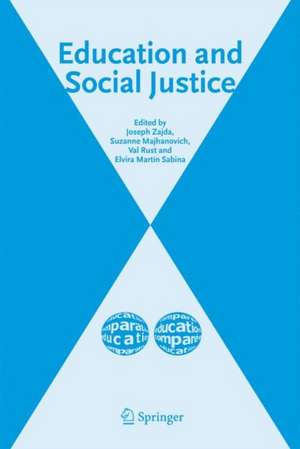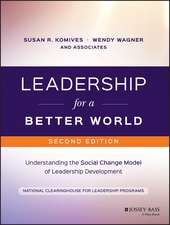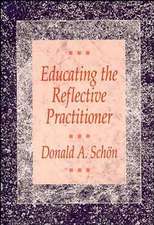Education and Social Justice
Editat de J. Zajda, S. Majhanovich, V. Rust, E. Martín Sabinaen Limba Engleză Paperback – 20 iul 2006
Preț: 637.46 lei
Preț vechi: 749.95 lei
-15% Nou
Puncte Express: 956
Preț estimativ în valută:
121.98€ • 127.62$ • 101.33£
121.98€ • 127.62$ • 101.33£
Carte tipărită la comandă
Livrare economică 02-16 aprilie
Preluare comenzi: 021 569.72.76
Specificații
ISBN-13: 9781402047213
ISBN-10: 1402047215
Pagini: 234
Ilustrații: XVII, 217 p.
Dimensiuni: 155 x 235 x 12 mm
Greutate: 0.34 kg
Ediția:2006
Editura: SPRINGER NETHERLANDS
Colecția Springer
Locul publicării:Dordrecht, Netherlands
ISBN-10: 1402047215
Pagini: 234
Ilustrații: XVII, 217 p.
Dimensiuni: 155 x 235 x 12 mm
Greutate: 0.34 kg
Ediția:2006
Editura: SPRINGER NETHERLANDS
Colecția Springer
Locul publicării:Dordrecht, Netherlands
Public țintă
ResearchCuprins
Education and Social Justice: Issues of Liberty and Equality in the Global Culture.- Education for All and the New Development Compact.- If Only My Eyes Were Different: The Loss of Identity and the Underutilization of Black Children's Educational Potential—Rethinking Assimilation and Social Justice.- Freedom's Children: a Gender Perspective on the Education of the Learner Citizen.- Cultural Diversity as Resistance to Neoliberal Globalization: The Emergence of a Global Movement and Convention.- L'apprentissage Précoce des Langues: des Pratiques Sociologiquement et Politiquement Marquees.- Educational Decentralization, Public Spending, and Social Justice in Nigeria.- Social Justice and Gender in Chinese Higher Education: Regional Issues of Equity and Access.- The University for Older Adults: on Cuba's Universalization of the University.- Quality and Equity in Early Childhood Care in Peru.- Cultural Complexity, Postcolonial Perspectives, and Educational Change: Challenges for Comparative Educators.
Textul de pe ultima copertă
The book explores the problematic relationship between education, social justice and the State, against the background of comparative education research. Social justice is an attempt to answer the following question: How can we contribute to the creation of a more equitable, respectful, and just society for everyone? The creation of a more equitable, respectful, and just society for everyone is a dream for all empowering and egalitarian pedagogues. But it will remain a mere hollow rhetoric, or magic words, unless we debate more vigorously social inequality in the global culture. The book critiques the existing status quo of stratified school systems, and the unequal disctribution of cultural capital and value added schooling.
By focusing on social justice globally, the authors attempt to answer one of the most pressing questions: Are social, economic and cultural divisions between the nations, between school sectors, between schools and between students growing or declining? The authors, whenever possible, consider and examine current evidence on education and social stratification, attainment gaps by boys and girls from different SES (socio-economic status) backgrounds, the results of school choice policies, differences in school effectiveness, and international comparisons of attainment. The authors, employing the competing discourses of education and social justice, examine and evaluate critically both the reasons and outcomes of education reforms, policy change, with respect to social justice. They provide a more informed critique on the Western-driven models of social justice and equality. By referring to Bourdieu’s call for critical policy analysts to engage in a ‘critical sociology’ and critical pedagogy, the book examines how central discourses surrounding the debate of education and social justice are formed in the contexts of dominant ideology, power, and culturally and historically derived perceptions and practices.
By focusing on social justice globally, the authors attempt to answer one of the most pressing questions: Are social, economic and cultural divisions between the nations, between school sectors, between schools and between students growing or declining? The authors, whenever possible, consider and examine current evidence on education and social stratification, attainment gaps by boys and girls from different SES (socio-economic status) backgrounds, the results of school choice policies, differences in school effectiveness, and international comparisons of attainment. The authors, employing the competing discourses of education and social justice, examine and evaluate critically both the reasons and outcomes of education reforms, policy change, with respect to social justice. They provide a more informed critique on the Western-driven models of social justice and equality. By referring to Bourdieu’s call for critical policy analysts to engage in a ‘critical sociology’ and critical pedagogy, the book examines how central discourses surrounding the debate of education and social justice are formed in the contexts of dominant ideology, power, and culturally and historically derived perceptions and practices.
Caracteristici
Explores conceptual frameworks and methodological approaches applicable in the research of the State, educational equality and social justice in education globally Examines central discourses surrounding the debate of education and social justice Illustrates how the relationship between the State and education policy affects current models and trends in education and social justice Demonstrates ideological imperatives of equality of educational opportunity and social justice Evaluates the ambivalent and problematic relationship between the State, education and social justice globally














